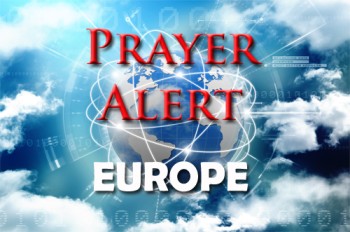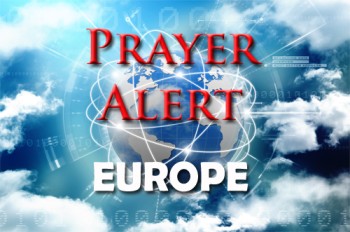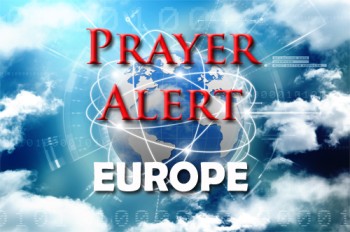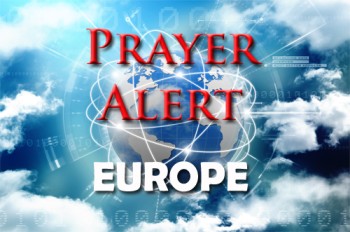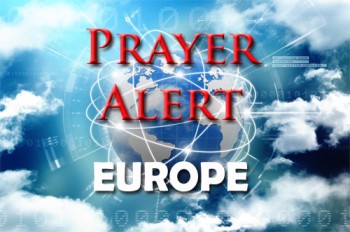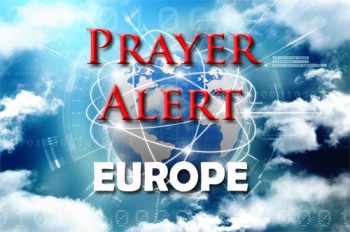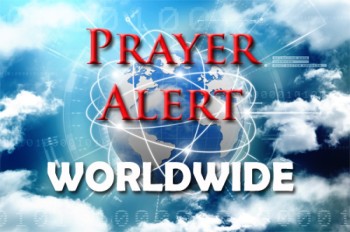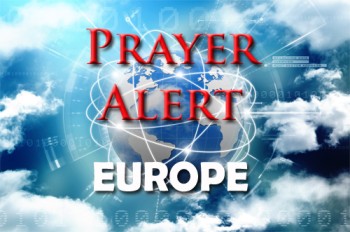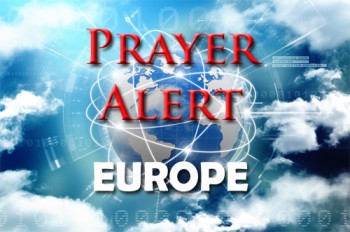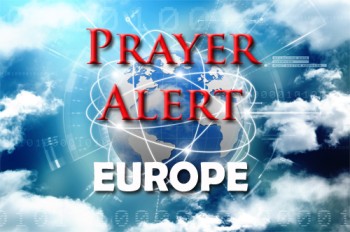Displaying items by tag: Europe
Ukraine / Russia / France / China: path to peace talks
French president Emmanuel Macron arrived on 6 April for a three-day state visit to China. President Xi Jinping greeted Macron on a huge red carpet lined by Chinese and French flags as the countries’ national anthems played. President Macron said, ‘The Russian aggression in Ukraine has dealt a blow to stability. I know I can count on you to bring back Russia to reason and everyone back to the negotiating table.’ Macron also said that Beijing can play a ‘major role’ in finding a path to peace in the conflict and welcomed China’s willingness to ‘commit to a resolution’. Macron, who was accompanied on his visit by the European Commission chief, Ursula von der Leyen, said he wants to ‘be a voice that unites Europe’ over Ukraine; coming to China with her served to ‘underline the consistency of this approach’.
Greece: Iranian terror attack averted
Greek police have prevented an ‘imminent attack’ against Israelis and Jews after arresting two Pakistani nationals who are part of an Iranian terror network. The two arrests came after the police, aided by Israel’s Mossad spy agency, uncovered plans for mass-casualty terrorist attacks, one of the targets being a Jewish restaurant in Athens. It is a kosher restaurant which also hosts other religious services. The two suspects had chosen targets of ‘high symbolism’. A third man, who is not in Greece, is wanted for questioning and has been charged in absentia. A police statement said, ‘Their aim was to cause the loss of life of innocent citizens and also to undermine the sense of security in Greece, while hurting public institutions and threatening our international relations’.
Russia: child’s drawing sparks police investigation
In Yefremov town is the official, patriotic picture on a wall depicting giant masked Russian soldiers with guns and supersized letters Z and V - symbols of Russia’s special military operation. But in Yefremov is another image of the war. Olga has a photo on her mobile phone of a child's drawing. To the left is a Ukrainian flag with the words ‘Glory to Ukraine’, on the right, the Russian tricolour and the inscription ‘No to war!’ Missiles fly from the Russian direction towards a mother and child standing defiantly holding up hands saying, ‘No’. 12-year-old Masha drew the picture. When her school saw it, they called the police. After investigating her father’s social media they concluded he was bringing up his daughter badly. He is now under house arrest and Masha is in a children’s home. A neighbour said, ‘The authorities want everyone to toe the line. No-one can have an opinion.’
Putin wanted ‘total cleansing’ of Ukraine
Vladimir Putin planned ‘total cleansing’ of Ukraine with house-to-house terror to subdue its people. Chilling emails leaked from within Russia’s FSB intelligence service talk about orders ‘from the very top’ for civilians to be taken to concentration camps in a bid to conquer Ukraine. The emails were leaked to Russian human rights activist Vladimir a week after the International Criminal Court charged Putin with war crimes for alleged deportation of Ukrainian children to Russia. Ukrainian president Volodymyr Zelensky said that there have been over 16,000 forced deportations carried out by Russia. Meanwhile Russia’s push for the key Ukrainian city of Bakhmut has stalled, despite their claims in early March that the city was surrounded on three sides. Ukraine’s commander-in-chief said that the fight for Bakhmut is stabilising and his troops’ have held back Moscow’s forces. Ukraine is now signalling a counteroffensive to take back territory lost to Moscow. The Wagner mercenaries are losing considerable strength.
Russia: Religious war
Russia is under the microscope for atrocities committed since the start of its war with Ukraine, from the killing and torture of religious leaders to the destruction of houses of worship. One Russian official even used the term ‘desatanization’ to describe the plan to cleanse the nation of many religious groups. Muslim Tatars in Crimea are repressed by Russian authorities, and many sentenced to long prison terms for principled opposition to the occupation. Russian forces attacking Ukraine have desecrated Holocaust remembrance sites and killed Holocaust survivors. It's not just Ukraine. Since the invasion, Moscow has been tightening its grip inside Russia on religious groups. 30% of Russian Jews have fled Russia since the war began with 50,000 emigrating to Israel. In Russia's occupied territories, the Russian military has bombed churches, monasteries, kingdom halls, mosques, synagogues, cemeteries, and other religious sites, and Russian soldiers have abducted and tortured religious figures because of their leadership roles.
Polish fighter jets for Ukraine
Poland announced that it’ll supply Kyiv with MiG-29 fighter jets, the first NATO member to do so. For months President Zelensky has implored America and Europe for warplanes to fight Russia. However, NATO allies have been slow-walking him because that might push the Russians to escalate on the battlefield. Yet the Soviet-era MiGs, of which Ukraine has a few dozen relics, are hardly the modern warplanes Zelensky wants and needs, and they’re no match for Russia’s Su-27s. The Sukhoi Su-27, NATO Codename ‘Flanker’, is a flying Missile Battery. Some believe Poland's action will encourage other NATO countries to follow suit and rethink on sending Ukraine high-tech warplanes. That's exactly what happened weeks ago with heavy tanks when the US and Germany changed their mind.
Global: Water Conference
From France to Zimbabwe and America to Chile, water shortages drive social and political conflicts. Rich countries can’t ignore it as a poor country's problem. So, between March 22 -24 the UN held its first water conference in 50 years. 6,500 policymakers, NGOs, water experts, and private sector groups attended the wake-up call to action. Water supply and demand is expected to reach 40% in eight years, making life as we know it virtually impossible for millions, possibly billions, of people. Governments and companies were asked to make ambitious commitments to form a ‘Water Action Agenda’. Progress on pledges and targets will be monitored over time, with the hope of significantly reducing the supply-demand gap by 2030. Pray for governments to upgrade ageing infrastructures, effectively fix system leaks, and improve tracking and billing capacities. Pray for the provision of incentives to ramp up research on water stress, and wastewater treatment solutions and develop new technologies.
Russia: Wagner and FSB
Wagner is giving ‘career talks’ in Russian schools to recruit young soldiers. Wagner, Putin’s private army distributed questionnaires entitled ‘Application of a Young Warrior’ to collect pupils' details. Moscow attempted to win the Bakhmut conflict with a ‘human wave’ of battalions of convicts, followed by elite Wagner troops. Half are now dead. This initiative will not replace the convict recruit pipeline. Wagner made slow gains at an immense cost. Pray for the ‘career talks’ to fall on deaf ears as adults to protect vulnerable teenagers. Meanwhile on 16th March a short circuit appeared to have caused a fire, which ignited fuel tanks in a building used by Russia's Federal Security Service (FSB). The FSB is Russia's internal security service, responsible for counterintelligence, border security and counter-terrorism. There has been a spate of arson attacks on government buildings, such as enlistment and conscription offices since the February 2022 invasion of Ukraine.
Russia: Does not recognise Hague court arrest warrants
The international criminal court in The Hague will seek arrest warrants against Russian individuals over war crimes. The arrest warrants come a year after the prosecutor opened investigations into possible war crimes against humanity and genocide. He has made three trips to Ukraine sites of alleged violations. Putin’s spokesperson said, ‘We do not recognise this court; or its jurisdiction.’ Russia left the leading human rights watchdog, Council of Europe, and threatened to withdraw from the World Trade Organization and the World Health Organization, thereby deepening the country’s isolation from the west.
Russia: British ambassador heckled in Vladivostok
Dame Deborah Bronnert, Britain's ambassador to Moscow, ran a gauntlet of loud-mouthed propagandists following her down the street shouting repeatedly, ‘You are not welcome here,' and ‘Britain sponsors terrorism.' She told the protesters, ‘We want peace,' and tried to continue speaking but was cut off and told repeatedly that Britain sponsored terrorism. She reiterated, ‘Russia must stop the war.’ Reports say she had no official meetings with the pro-war authorities in Vladivostok, but was hauled into their foreign ministry and forced to walk through what appeared to be stage-managed propagandists. Russia has increased rhetoric against the UK as its Ukraine invasion falters. Western officials say the wild claims are a distraction tactic. Moscow protests are rare and quickly crushed by police - suggesting this protest had tacit support from authorities.
